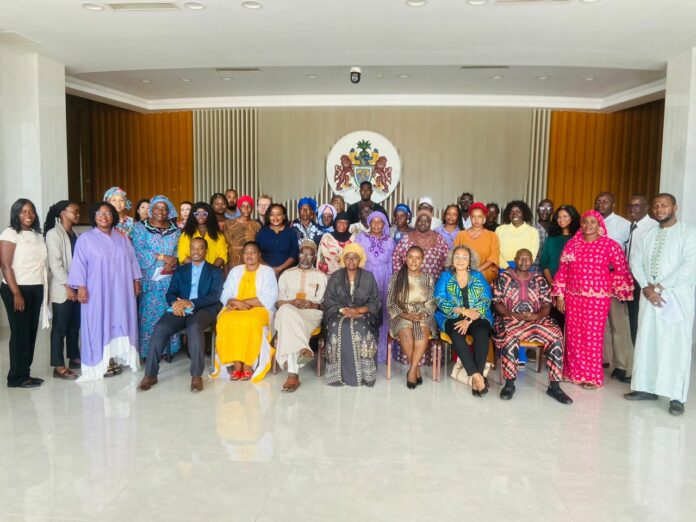By Zackline Colley
A two-day workshop in Banjul has brought together key stakeholders to bolster national and regional advocacy efforts against female genital mutilation (FGM) and strategize on protecting women and girls from harmful practices.
The workshop, jointly organized by GAMCOTRAP, NGBV, and Tango, was dedicated to the defence of the Women’s Amendment Act 2015 that criminalizes FGM, countering attempts to overturn the legislation.
Judy Gitau, Regional Coordinator for Equality Now, emphasized the haste of safeguarding the law and raising public cognition on the harmful effects of FGM.
“Moving forward, we must map out strategies to protect and defend the Women’s Amendment Act of 2015 so that it can continue to protect women and girls,” she stated.
Gitau also highlighted four major challenges facing the anti-FGM efforts: litigation, strong cultural norms, patriarchal systems, and an organized anti-rights wave.
“We never anticipated a need to defend the law, but we must strategize to ensure its implementation becomes the new culture, the new norm,” she added.
The workshop comes at a crucial time, as The Gambia has seen efforts to repeal the Women’s Amendment Act. In July 2024, the National Assembly rejected a private member’s bill aiming to repeal the law. However, according to Gitau, the fight is far from over, with ongoing legal challenges and societal resistance.
“The threat to the anti-FGM legislation here is a manifestation of a broader anti-rights wave that, if we are not careful, can push back on the rights of women and girls across the globe,” she warned.
Mr. Fallu Sowe, National Coordinator for the Network Against Gender-Based Violence, also echoed these sentiments, describing the fight against FGM as both a national and international issue.
He recalled the 2023 prosecution of three women for engaging in FGM, which sparked significant backlash. “Religious leaders and some communities began speaking out, calling for the repeal of the law. It’s a big lesson we must learn from – when we have laws, we must stand to protect them,” Sowe asserted.
Civil society organizations (CSOs) have played a vital role in advocating against FGM and supporting survivors. Yadicon Njie Eribo, Chairperson of Tango, spoke on behalf of CSOs, highlighting their efforts to raise understanding and engage communities through dialogues and workshops.
“CSOs have consistently lobbied for stronger legal frameworks and policy reforms to protect women. The Women’s Amendment Act 2015 stands as a powerful testament to our collective resolve to eliminate this harmful practice,” she noted.
Eribo praised the ongoing advocacy efforts, pointing up that education and socialization workshops have been pivotal in furnishing community members with vital information about the threats of FGM and the legal protection provided by the 2015 Act.
Honourable Minister of Gender, Children, and Social Welfare, Madam Fatou Kinte, restated The Gambia’s commitment to international human rights conventions, including CEDAW and the CRC, which protect women’s and girls’ rights.
“The Gambia will continue social mobilization at the community level on the health and reproductive consequences of FGM while defending and implementing the law,” Kinte assured participants. She emphasized the importance of collective grassroots efforts and multi-stakeholder collaboration in ensuring the rights and well-being of women and girls are prioritized.
The workshop serves as a significant step in reinforcing The Gambia’s commitment to ending FGM, with stakeholders agreeing on the need for continued advocacy, enhanced implementation of the law, and greater public engagement to safeguard the future of women and girls in the country.









